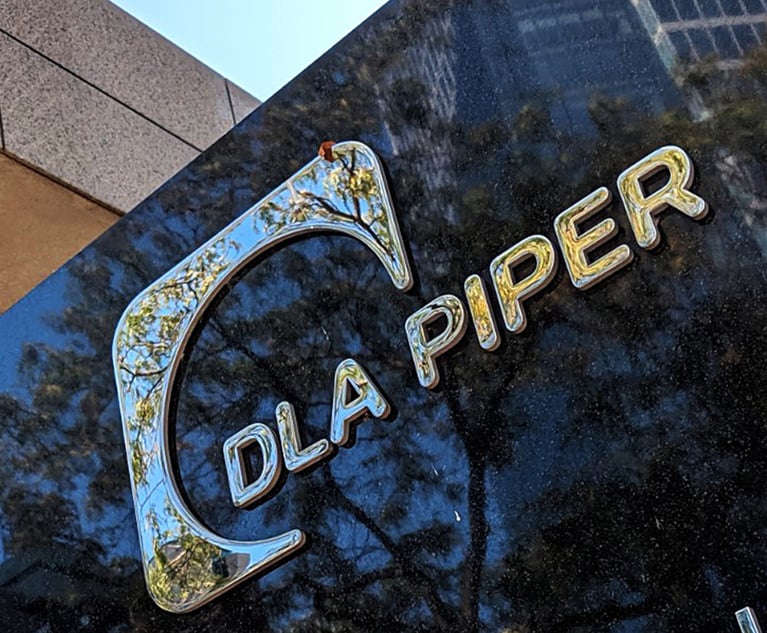 Photo: niroworld/Shutterstock.com
Photo: niroworld/Shutterstock.comTexas Lawyers Can Still Use Anti-SLAPP in Attorney Discipline Cases, But Not for Long
The case involves allegations by the discipline commission that attorney Omar Rosales broke ethics rules by sending misleading and deceitful letters to medical providers regarding their websites' compliance with the Americans with Disabilities Act.
June 28, 2019 at 12:04 PM
4 minute read
Austin's Third Court of Appeals on Thursday refused to rehear a ruling that found attorneys could use the Texas anti-SLAPP law to dismiss lawyer discipline lawsuits.
By denying the State Bar of Texas Commission for Lawyer Discipline's motion for a rehearing in Commission for Lawyer Discipline v. Rosales, it means the Third Court's April opinion in the case will stand. Lawyers in the court's jurisdiction will be able to file anti-SLAPP motions to dismiss to argue that a court should throw out their discipline cases, if they're based on the right to free speech, freedom of assembly or freedom to petition the government.
The case involves allegations by the discipline commission that attorney Omar Rosales broke ethics rules by sending misleading and deceitful letters to medical providers regarding their websites' compliance with the Americans with Disabilities Act. But he had successfully argued that the state's anti-SLAPP law protected him, and trial court dismissed the case.
The Third Court's opinion found that the anti-SLAPP law applies to lawyer discipline cases. But after weighing the specifics of Rosales' case, it overturned the dismissal because it ruled that the bar had shown enough evidence for a prima facie case against Rosales.
The discipline commission argued in a May 8 motion for a rehearing that the opinion conflicted with the Texas Supreme Court's authority to regulate the legal profession and enforce lawyer discipline. Filing an anti-SLAPP motion delays discipline cases for a year or more, which throws off deadlines in the Texas Rules of Disciplinary Procedure. The Supreme Court has held that when laws interfere with the discipline process, the high court's constitutional and statutory authority over the system trumps those laws, the commission argued.
It remains to be seen whether the commission will appeal the Third Court's opinion to the Texas Supreme Court. Previously, Rosales' attorney said that he would appeal the ruling.
Regardless of the possible appeal, the authorization to use the anti-SLAPP motion for lawyer discipline cases will be short-lived. The Texas Legislature passed House Bill 2730, and Gov. Greg Abbott signed it into law, to limit the application of the Texas Citizens Participation Act motion to dismiss and specifically exclude attorney discipline cases. That law goes into effect on Sept. 1.
State Bar Office of Chief Disciplinary Counsel spokeswoman Claire Reynolds declined to comment.
Rosales' attorney, Gaines West, a partner in West, Webb, Allbritton & Gentry in College Station, wrote in an email that he agreed with the Third Court's finding that the anti-SLAPP law applies to lawyer discipline cases. He disagrees with the finding that the commission showed a prima facia case and Rosales failed to establish defenses. Rosales plans to appeal.
“I believe they stretched it so that the court has a reason to toss my client's $65,000 attorney fees award against the commission,” West said.
Read the motion for rehearing.
Related stories:
This content has been archived. It is available through our partners, LexisNexis® and Bloomberg Law.
To view this content, please continue to their sites.
Not a Lexis Subscriber?
Subscribe Now
Not a Bloomberg Law Subscriber?
Subscribe Now
NOT FOR REPRINT
© 2024 ALM Global, LLC, All Rights Reserved. Request academic re-use from www.copyright.com. All other uses, submit a request to [email protected]. For more information visit Asset & Logo Licensing.
You Might Like
View All
From ‘Deep Sadness’ to Little Concern, Gaetz’s Nomination Draws Sharp Reaction From Lawyers
7 minute read
DLA Piper Sued by 2 Houston Companies, Alleging a 'Fake Lawyer' Represented Them in Argentina
3 minute read

Trending Stories
- 1AI: An Enhancement, Not a Replacement for Attorneys
- 2Fowler White Burnett Opens Jacksonville Office Focused on Transportation Practice
- 3Auditor Finds 'Significant Deficiency' in FTC Accounting to Tune of $7M
- 4'A Mockery' of Deposition Rules: Walgreens Wins Sanctions Dispute Over Corporate Witness Allegedly Unfamiliar With Company
- 5Call for Nominations: TLI's Pennsylvania Legal Awards 2025
Who Got The Work
Michael G. Bongiorno, Andrew Scott Dulberg and Elizabeth E. Driscoll from Wilmer Cutler Pickering Hale and Dorr have stepped in to represent Symbotic Inc., an A.I.-enabled technology platform that focuses on increasing supply chain efficiency, and other defendants in a pending shareholder derivative lawsuit. The case, filed Oct. 2 in Massachusetts District Court by the Brown Law Firm on behalf of Stephen Austen, accuses certain officers and directors of misleading investors in regard to Symbotic's potential for margin growth by failing to disclose that the company was not equipped to timely deploy its systems or manage expenses through project delays. The case, assigned to U.S. District Judge Nathaniel M. Gorton, is 1:24-cv-12522, Austen v. Cohen et al.
Who Got The Work
Edmund Polubinski and Marie Killmond of Davis Polk & Wardwell have entered appearances for data platform software development company MongoDB and other defendants in a pending shareholder derivative lawsuit. The action, filed Oct. 7 in New York Southern District Court by the Brown Law Firm, accuses the company's directors and/or officers of falsely expressing confidence in the company’s restructuring of its sales incentive plan and downplaying the severity of decreases in its upfront commitments. The case is 1:24-cv-07594, Roy v. Ittycheria et al.
Who Got The Work
Amy O. Bruchs and Kurt F. Ellison of Michael Best & Friedrich have entered appearances for Epic Systems Corp. in a pending employment discrimination lawsuit. The suit was filed Sept. 7 in Wisconsin Western District Court by Levine Eisberner LLC and Siri & Glimstad on behalf of a project manager who claims that he was wrongfully terminated after applying for a religious exemption to the defendant's COVID-19 vaccine mandate. The case, assigned to U.S. Magistrate Judge Anita Marie Boor, is 3:24-cv-00630, Secker, Nathan v. Epic Systems Corporation.
Who Got The Work
David X. Sullivan, Thomas J. Finn and Gregory A. Hall from McCarter & English have entered appearances for Sunrun Installation Services in a pending civil rights lawsuit. The complaint was filed Sept. 4 in Connecticut District Court by attorney Robert M. Berke on behalf of former employee George Edward Steins, who was arrested and charged with employing an unregistered home improvement salesperson. The complaint alleges that had Sunrun informed the Connecticut Department of Consumer Protection that the plaintiff's employment had ended in 2017 and that he no longer held Sunrun's home improvement contractor license, he would not have been hit with charges, which were dismissed in May 2024. The case, assigned to U.S. District Judge Jeffrey A. Meyer, is 3:24-cv-01423, Steins v. Sunrun, Inc. et al.
Who Got The Work
Greenberg Traurig shareholder Joshua L. Raskin has entered an appearance for boohoo.com UK Ltd. in a pending patent infringement lawsuit. The suit, filed Sept. 3 in Texas Eastern District Court by Rozier Hardt McDonough on behalf of Alto Dynamics, asserts five patents related to an online shopping platform. The case, assigned to U.S. District Judge Rodney Gilstrap, is 2:24-cv-00719, Alto Dynamics, LLC v. boohoo.com UK Limited.
Featured Firms
Law Offices of Gary Martin Hays & Associates, P.C.
(470) 294-1674
Law Offices of Mark E. Salomone
(857) 444-6468
Smith & Hassler
(713) 739-1250






